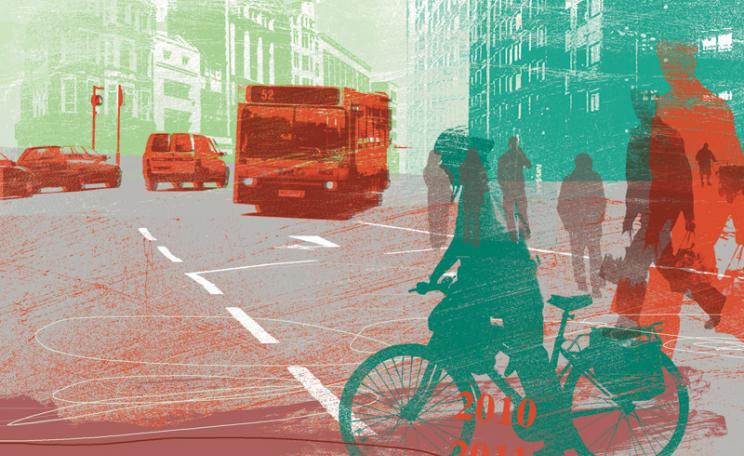The MSB is the largest single conservation project in the world; the fulcrum of a network that spans the globe, involving hundreds of scientists and researchers – the seedprotectors – who dispatch their finds in airmail packages from 80 centres around the world. When the work is complete, Kew’s MSB will hold the seeds of 30 per cent of the green germ plasm on the planet – around 200 main plant species – that could be used for food crops.
At the bottom of a steep spiral staircase is a massive steel blast- and fire-door, made by Chubb safe company, which leads to a white sterile airlock and, beyond that, a rarefied atmosphere, where special air-conditioning maintains low temperatures and zero humidity. Off the central hub are the seed rooms where the temperature is kept at -20°C, to protect the seeds, hold them in ‘suspended animation’ and stop them from germinating. Endless racks hold row upon row of Kilner jars, each sealed to protect its contents for up to 500 years.
Here our plant history is being archived. It’s the biological equivalent of the British Library – and both stand testament to the development of our civilisation.
The contents are rightly prized and rightly secure – plant libraries such as Kew’s MSB are a lifeline that might at some time in the future be called upon to feed an entire world. As is the way with these things, America has its own MSB equivalent – the Crop Preservation Trust – as do China and Russia. Everywhere, they are viewed as being critical backstops in an uncertain world.
Climate change is not just emerging in the form of climate shocks and unpredictable weather patterns, it is also manifesting itself in the form of new pathogens and plant viruses. If an epidemic disease should strike a major food crop, then millions could starve. If a deadly bacterium wiped out half of China’s rice crop, 1,300 million people would be in peril. The only salvation might lie in the seed banks; in the form of ‘old’ seeds with genetic resistance.
In America, Fort Collins in Denver has provided just such an emergency seed service for the past 50 years. Its seeds have been sought to address threats of wheat scab, plum poxes, potato blight and citrus cankers and provided back-up when wars, typhoon and drought have wreaked havoc.
The increasing homogenisation of agriculture compounds the threat posed by climate change. There are an estimated 27,000 potentially usable undomesticated wild food and commercial crop plants, yet all plant food we predominantly eat today is derived from just 37 existing species. A further threat to our resilience to any potential epidemic comes from genetic modification, which results in an increasingly narrow number of breeds.
At the G8 summit in Germany in June, scientists warned world leaders that, as a result of climate change, population growth and industrial agriculture, two thirds of the planet’s wild plant species could be extinct by 2100. This, they said, would seriously damage conventional domesticated plant agriculture. There would be an explosion of pests and simultaneously a collapse in food plant pollination, which would devastate global food production and make mass starvation a distinct possibility.
Against such a backdrop, the green phoenix of our seed bank, which could allow us to rise from the ashes, is itself under threat.
Bizarrely for such a critical record, the MSB has been reliant on Lottery Funding and this is soon to cease. In 1997 the Millennium Commission awarded the project £30m, on the proviso it was matched by public and industry donations. In 2009 this award runs out, threatening the chances of the project ever being fully realised. Any hope or expectation that funding from another Lottery stream would be forthcoming has been dashed by the seemingly insatiable demands of the 2012 Olympics.
Roger Smith, the former head of the seed bank project and now its champion and adviser, told the Ecologist, ‘We live in a country with a gross domestic product (GDP) of over £1.3 thousand billion, where all three major political parties now parade logo built on images of biodiversity. I will despair if we cannot find the money – around one-thousandth of one per cent of our annual GDP – to continue and accelerate our work after 2009. It is in all our interests – government and industry as well as private citizens. For our children’s children to meet the challenges of an uncertain future, they need the greatest biological inheritance we can bequeath them. To knowingly fritter away even part of that inheritance is selfishness for which they will rightly condemn us.
‘I will doubly despair, as so many of our partners are from countries whose citizens have benefited nowhere near as much as we have from environmental change and industrialisation. Yet, though not responsible, they will be amongst the first to face the damaging effects of these changes to their livelihoods and wellbeing. To refuse them the insurance that the seed bank offers at such little cost, would betray our national reputation for environmental leadership matched with action.’
Many environmentalists believe that leaving the MSB to survive on charitable handouts is a grave mistake. They also fear that it may be placed under private control, as is happening to the National Fruit Collection at Brogdale, Kent.
Here, the custodians of thousands of varieties of native species of apples, pears, plums, apricots and cherries among countless others, are currently homeless, having previously entered into a sale and leaseback deal with a developer to cut costs. At the same time Defra has invited tenders from the private sector to take over the running of the institution. The winner was set to be announced this autumn, but due to the failure of all the bidders to meet the required criteria the tender document has been reissued.
Its hand to mouth existence in recent years has resulted in policy changes which some, like Derek Tolman of Bernwode Nurseries, say means Defra is failing to fulfil the stated aim to conserve ‘in particular that which has been grown in or originated in the UK’. Over the past few years new ‘accessions’ to the collection have dwindled, seemingly reflecting a decision to not retain varieties that have also grown elsewhere and are held in another country’s seed bank.
There are many inherent problems with such a policy, not least the vulnerability of many institutions in the seed bank network. The seed banks in Iraq and Afghanistan fell victim to the respective wars in those countries – not by bombing but by looting and destruction that was allowed in the aftermath of the invasion. In 2006 the Philippines lost its entire seed bank tofloods. Hurricanes in 1998 accounted for the one in Honduras. Shoestring funding is a more subtle and chronic threat in many countries, resulting in places like the MSB being increasingly seen as a luxury item on the bottom line, when in truth they are our lifeline. The Millennium Seed Bank is our insurance policy against climate change, and we should pay the premiums.
This article first appeared in the Ecologist November 2007




